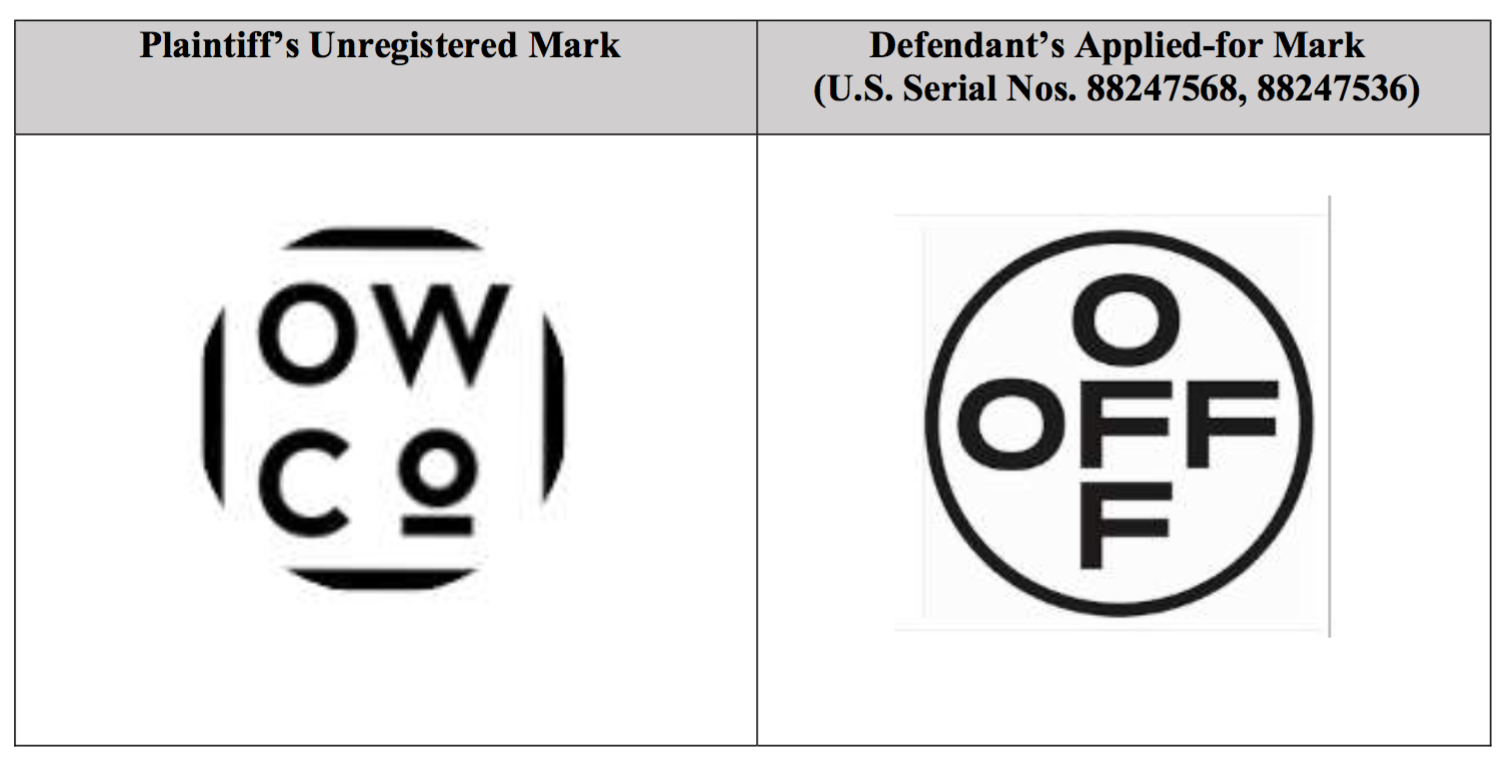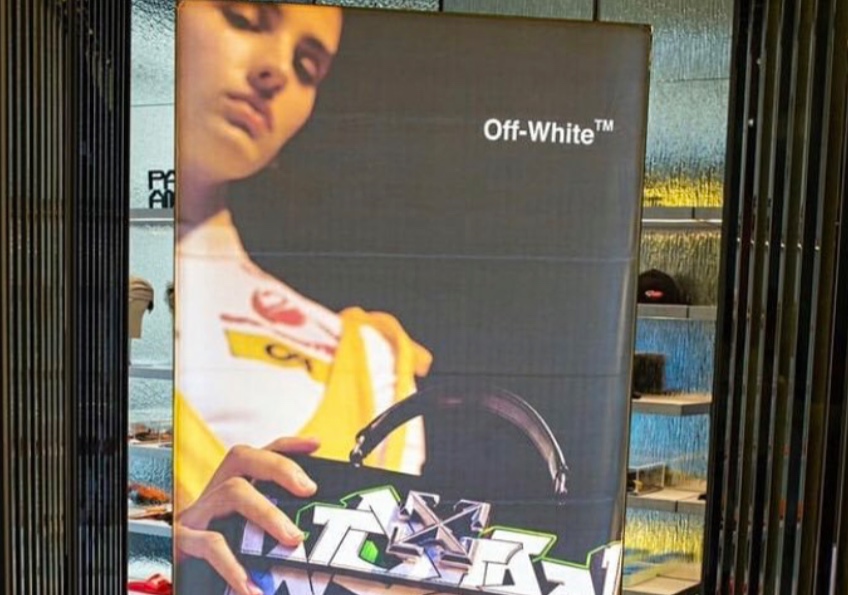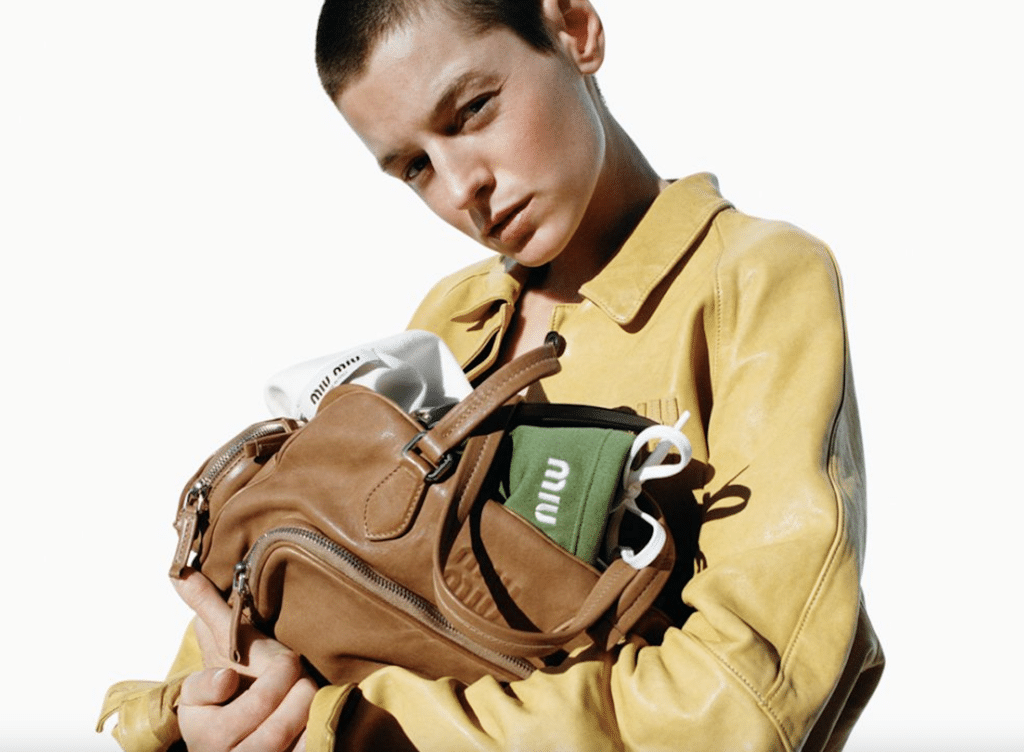Off-White is being sued for allegedly hijacking the name of its brand from another company that says it has been using the name since the 1990s. According to a complaint filed in New York federal court on Sunday, OffWhite Productions LLC claims that Virgil Abloh’s red-hot brand is on the hook for trademark infringement, as its name is a bit too close to the New York-based company’s federally registered trademark, which covers “marketing, product design and related services.”
OffWhite Productions claims that it “has publicly done business as “OffWhite’ since the late 1990s,” approximately 15 years before Abloh’s Milan-based brand got its start in 2012. The New York-based a multi-disciplinary design and creative agency – whose clients range from Nike’s Jordan Brand to IBM and Coca-Cola – alleges that it has been “operating a website at offwhitedesign.com since July of 2001,” and has been “maintaining an active Twitter account with the handle @offwhitedesign.”
“Notwithstanding its knowledge of [OffWhite Productions’] preexisting business, [its common law] trademark rights and [its federal] trademark registration [for OFFWHITE CO.],” Off-White – which has routinely been named the “hottest brand” in the world by fashion discovery platform Lyst – has “established and promoted multiple entities and products that infringe [OffWhite Productions’] OFFWHITE trademark,” the company asserts.
Despite “demanding that [Abloh’s similarly-named brand] cease such infringing conduct,” and placing the company on notice of “the specific commercial damage being caused by [its wildly-famous brand],” OffWhite Productions claims that Off-White has “refused to alter [its] conduct whatsoever in response to these communications.”

Instead, Off-White’s counsel “downplayed the significance of this confusion, and advised that his client would not cease its infringement,” and “has since … proceeded to file additional applications [for various] OFF-WHITE trademarks,” including “an entirely new design incorporating the word ‘OFF’ in a graphic arrangement that is unmistakably similar to a logo used by [OffWhite Productions’] but not registered,” which OffWhite Productions says its rival has done in “spite.” (Unmistakably similar?)
Such behavior, OffWhite Productions argues, is nothing more than an attempt by Off-White to “steamroll its way over and past [its] superior and senior rights in the OFFWHITE trademark,” thereby “threatening to erect a commercial, branding and legal roadblock to the expansion of [OffWhite Productions’] business, including with respect to areas of logical and foreseeable expansion beyond the goods and services in which [it] is [currently] engaged.”
OffWhite Productions claims that Off-White’s “actions have resulted in a likelihood of confusion, actual confusion and reverse confusion,” as well as in dilution of its OFFWHITE trademark. And still yet, it claims that Off-White is “effectively dooming [OffWhite Productions’] ability to make use of, develop and enjoy the benefits of its brand,” in large part because Off-White’s “advanced SEO practices to promote its infringing use of the OFFWHITE trademark,” paired with its public relations efforts and “celebrity-outreach campaigns have succeeded in displacing [OffWhite Productions’] URL offwhitedesign.com from Google’s top search results.”
“As a result of [Off-White’s] conduct,” OffWhite Productions says that it “has been ‘delisted’ from the first-level page position in Google searches for the terms ‘OffWhite’ or ‘Off White,’” thereby causing significant harm to its brand and causing internet users to be “routinely referred, not to [its] website, but to products and services offered by [Off-White] or its collaborators.”
To be fair, if you Google OffWhite Co., which is the name listed on OffWhite Productions’ website and for which it maintains a federal trademark registration, the first three results are websites associated with the marketing company.
With all of this in mind, OffWhite Productions has set forth claims of federal trademark infringement and unfair competition, and common law trademark dilution, among others, and is seeking monetary damages, as well as injunctive relief to bar Off-White from “using any logo, trade name, or trademark that may be calculated to falsely represent … that the goods or services of the defendant … are sponsored by, authorized by or in any way associated with the plaintiff.”
As for whether OffWhite Productions has a leg to stand on here in terms of success, it might be a bit of an uphill battle. In order to prevail on a trademark infringement claim the trademarks, themselves, must be similar, and the products or services must be similar, among other factors. While it could certainly be argued that marketing services are tangentially related to fashion design, at the same time, it sure does feel like a bit of a stretch. It is worth noting, though, as the U.S. Patent and Trademark Office and various courts have held, the greater the similarity of the trademarks themselves, the less similar the goods or services need to be to support a finding of likelihood of confusion. That bodes well for OffWhite Productions.
Nonetheless, at the heart of a trademark infringement claim is the likelihood that consumers will confuse the products of the two parties. Given the sheer level of fame associated with Virgil Abloh (who also serves as the menswear director of Louis Vuitton, the most valuable luxury brand in the world), the Off-White brand and the Off-White marks, it seems unlikely that OffWhite Productions’ marketing services would be confused with Off-White’s wares, and/or vice versa – even if Abloh is well-known for his wide range of collaborations.
In terms of the trademark dilution claim, which is different from trademark infringement, and gives the holder of a well-known trademark standing to prevent others from using that mark in a way that would lessen its uniqueness, the likelihood of success for OffWhite Productions is also up for debate. While “fame” is not required for a mark to be protected under New York anti-dilution law (as distinct from the federal dilution statute), New York law requires that the mark either have a “distinctive quality,” or have acquired secondary meaning capable of dilution.
It is almost certainly safe to say that Abloh’s Off-White marks maintain this level of meaning in the minds of consumers. It is unclear if OffWhite Productions’ mark rises to this level.
Counsel for Off-White had no comment on the recently-initiated litigation.
*The case is OFFWHITE PRODUCTIONS, LLC, d/b/a OFFWHITE CO., v. OFF—WHITE LLC, 1:19-cv-06267 (SDNY).











